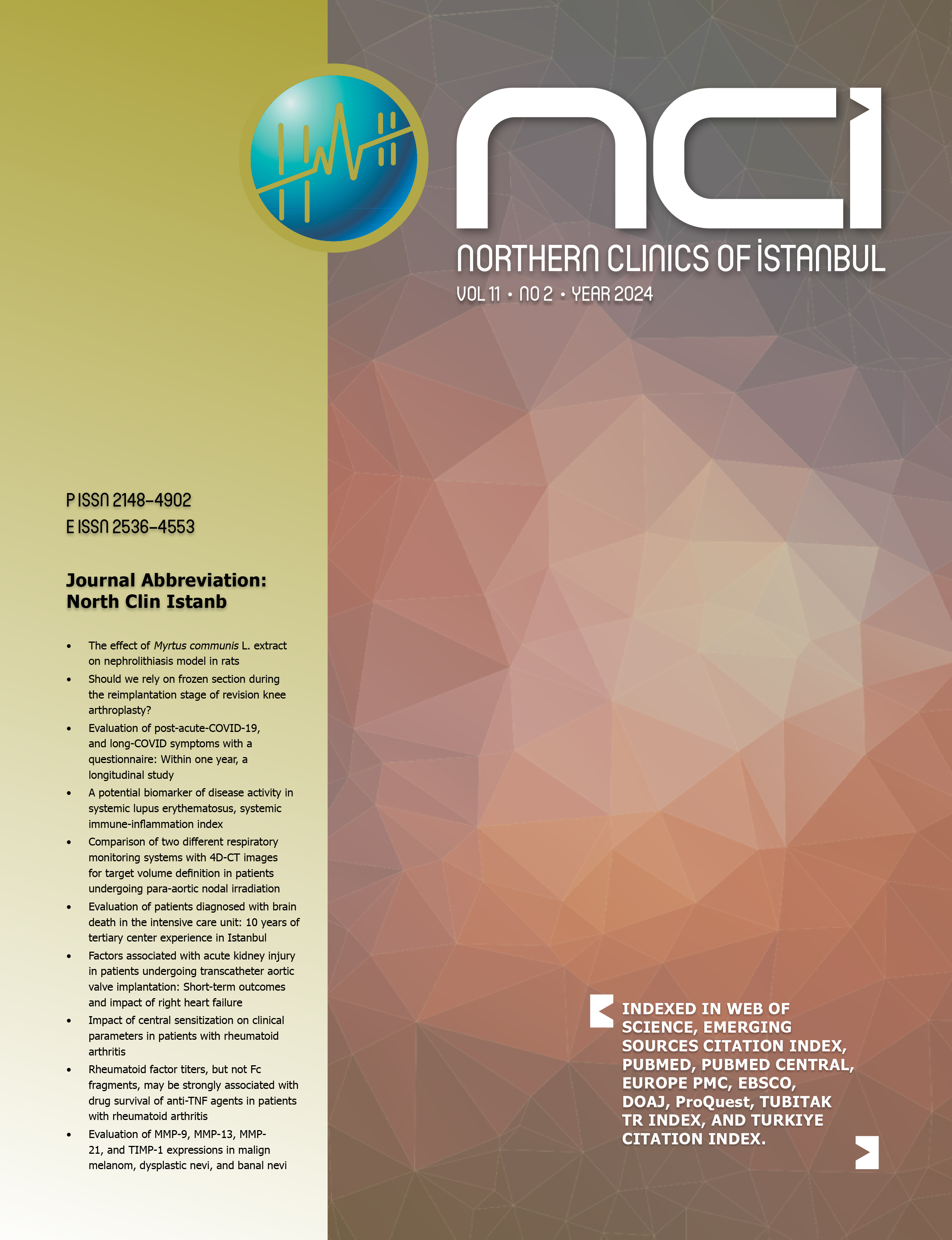Sexuality and sexual dysfunction in patients with psoriatic arthritis: A cross-sectional study
Jokasta Nunes Lobo1, Lysiane Maria Adeodato Ramos1, Andrea Rocha De Saboia Montalverne1, Jozélio Freire de Carvalho2, Carlos Ewerton Maia Rodrigues31Department of Rheumatology, Hospital Geral de Fortaleza, Ceará, Brazil2Núcleo de Pesquisa em Doenças Crônicas não Transmissíveis (NUPEN), School of Nutrition from the Federal University of Bahia, Salvador, Bahia, Brazil
3Graduate Program in Medical Sciences, Universidade de Fortaleza (Unifor), Fortaleza, Brazil; Department of Internal Medicine, Federal University of Ceará, Brazil
OBJECTIVE: Psoriatic arthritis (PsA) is a chronic inflammatory disorder affecting the joints, skin and entheses. Despite the importance of the topic, few studies have investigated the association between PsA and sexual function. The purpose of this study was to assess sexuality and the prevalence of sexual dysfunction (SD) in patients with PsA.
METHODS: This was an observational, cross-sectional single-center study on 23 PsA patients (male=12; female=11) evaluated with 2 male questionnaires (MSQ= Male Sexual Quotient, and IIEF=International Index of Erectile Function) and 2 female questionnaires (FSQ= Female Sexual Quotient, and FSFI=Female Sexual Function Index) validated for Brazilian Portuguese, in order to determine changes in sexual function. Clinical parameters, musculoskeletal activity and skin activity were also analyzed to identify factors associated with SD.
RESULTS: The mean age was 52.1±9.7 years (males) and 49.1±9.6 years (females). Clinically, the patients had low skin and peripheral joint disease activity or were in remission. The mean time of PsA was 10±6.2 years, and 65.2% had a steady sexual partner. The mean MSQ score was 75.8±16.8. The prevalence of SD was 91.7% in men (IIEF), with a predominance of mild SD. The mean FSQ score was 64.9±24.1. The prevalence of SD was 72.7% in women (FSFI), with low domain scores. Also, a significant association was found between female age and total and domain-specific FSFI scores. PASI (Psoriasis Area and Severity Index) and the general satisfaction domain (IIEF) were significantly correlated.
CONCLUSION: This study found a high prevalence of SD in PsA patients. Age had a negative impact on female sexual function. Physicians need to be more aware of SD in this population to provide early multidisciplinary treatment and minimize the impact of the disease on the quality of life of patients and their partners.
Keywords: Psoriatic arthritis; sexual dysfunction; sexuality.
Manuscript Language: English





















